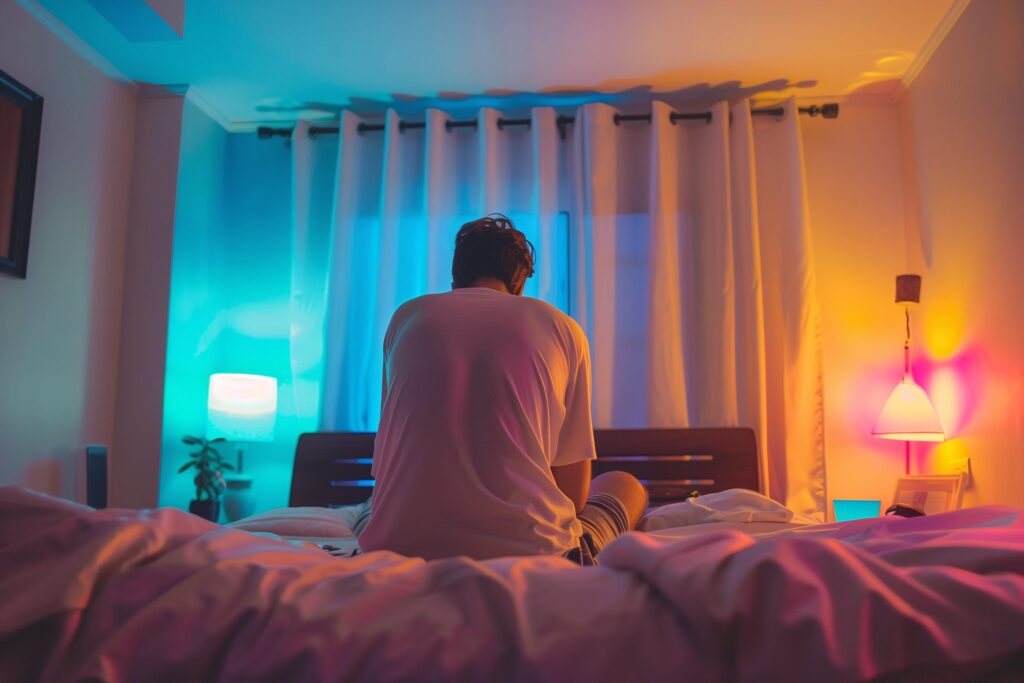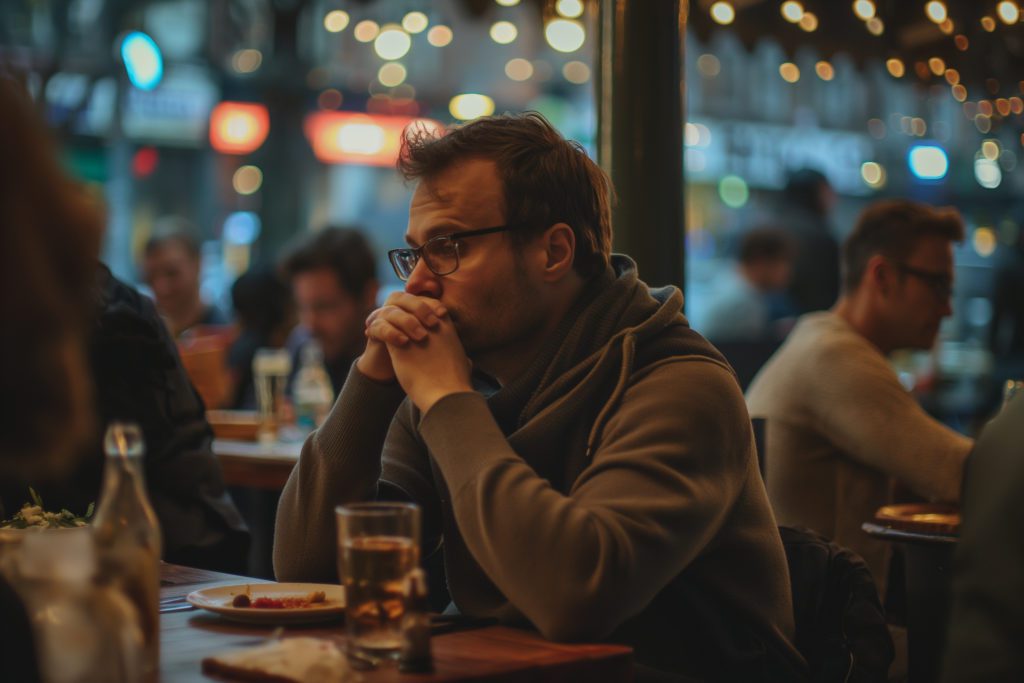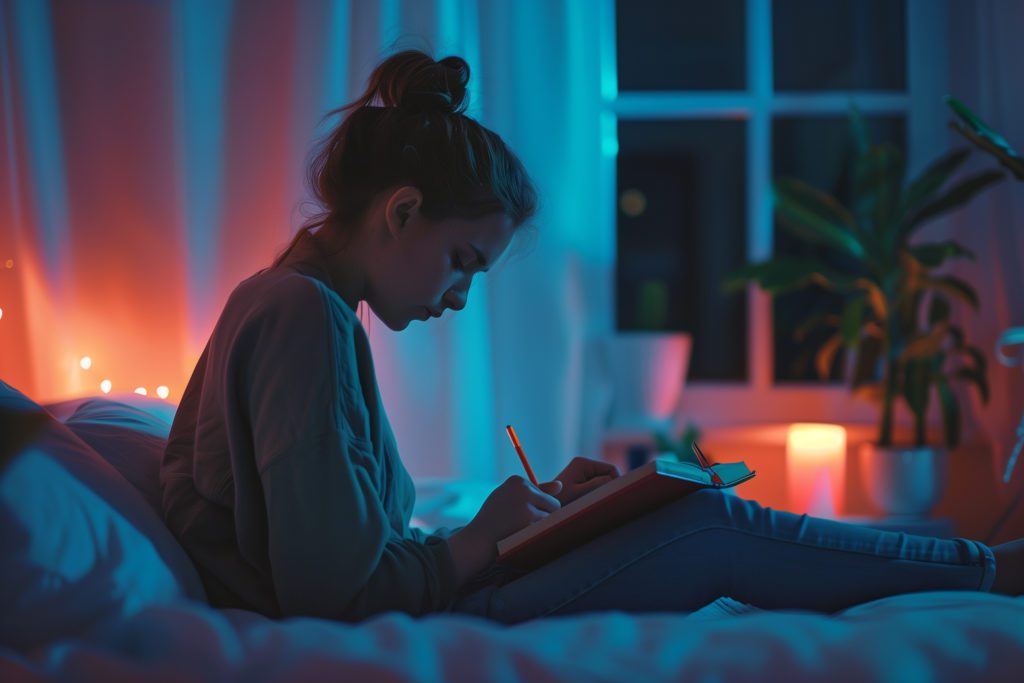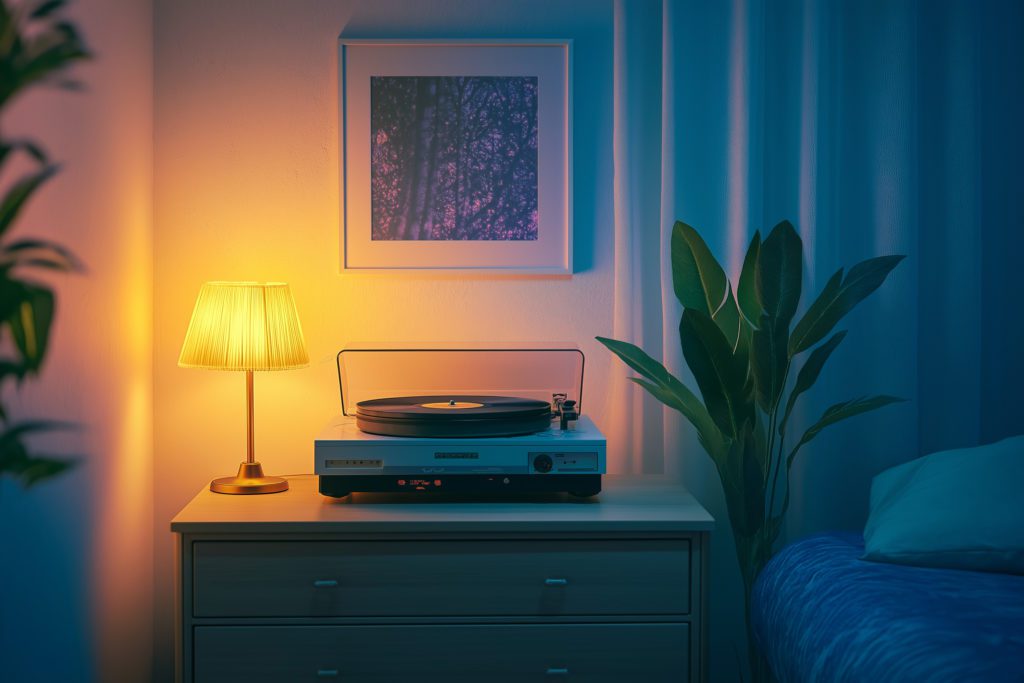
Dos and Don’ts When You Wake Up at Night and Have Trouble Falling Asleep
Have you ever woken up in the middle of the night and found yourself unable to fall back asleep? We’ve all been there.

It may be frustrating, but waking up throughout the night is actually more normal than you might think. Even if you’re unaware it’s happening, most people experience at least 20 mini-awakenings per night, ranging from tossing and turning to waking up and adjusting your pillow.
These awakenings may seem excessive, but they’re all part of a healthy sleep pattern. That said, waking up numerous times throughout the night and staying awake for longer than a few moments is typically unhealthy and may be a sign of a bigger problem known as “sleep maintenance insomnia.”
Up to one in five Americans suffer from sleep maintenance insomnia, or the inability to fall back asleep after waking up. While the condition is relatively common, there are simple tricks you can use to minimize the amount of time you spend lying in bed awake at night.
Do get out of bed
As a general rule, if you wake up and can’t fall back asleep after 20 minutes, it’s best to get out of bed. This tip may seem counterproductive, but getting out of bed can boost your odds of getting more sleep.
Once you’re up, go to a different room and do a relaxing activity, like reading or meditating, until you start feeling sleepy again. Ideally, you should stay out of your bedroom for at least 30 minutes – the idea is, you’ll be more likely to fall asleep if you wait until you’re drowsy to go back to bed.
Do make your bedroom quiet and comfortable
If you’re having trouble falling asleep, always check your bedroom environment to ensure it’s as comfortable as possible with minimal distractions. First, turn off or remove all lights, including light coming through any windows and LED lights coming from electronics. Any lighting can fool your brain into thinking it’s daytime and make it more difficult to fall back asleep.
Next, block out any distracting sounds – shut your windows, close the door, or use earplugs. If you live in a noisy city and can’t sleep through it, try turning on a fan or listening to white noise to drown out the disturbances.
Do practice relaxation techniques
Several studies have shown a close link between anxiety and sleep. Essentially, difficulty sleeping can cause anxiety, which then further prevents you from being able to sleep. It’s a vicious cycle, but there are ways to relax your brain and reduce stress so you can rest more peacefully.
One popular method is progressive muscle relaxation. Working on one muscle group at a time and starting from the bottom up, gently tense your muscles, count to five, then slowly let them relax. Be sure to breathe deeply during the process and pay special attention to areas with the most stress, such as your jaw or neck.
Do some easy reading
Reading a boring or uneventful book is a simple way to ease your mind and lull yourself back to sleep. Try it out by leaving your bed and finding a comfortable spot with just enough light so that you can read the pages. Just be sure not to read anything too exciting or mentally taxing – a pleasant novel or simple short story should do the trick.
Do listen to relaxing music
Playing soft, relaxing music is an excellent way to coax your mind into falling asleep. As a bonus, music can also block out excess noise that may be disrupting your sleep. Of course, the type of music you should listen to will ultimately come down to personal preference. However, slow beats, classical music, and smooth jazz are all great options.
Don’t watch the clock
It’s natural to want to check your alarm clock or cell phone when you wake up in the middle of the night. However, this habit only keeps you obsessing over the fact that you aren’t getting enough rest. Additionally, watching the clock often increases stress and anxiety, making it more challenging to fall asleep.
If you need to keep your phone or alarm clock nearby to ensure you’ll wake up, try to resist the temptation to check the time throughout the night. However, if possible, it’s best to either remove any clocks from your bedroom or place them out of sight.
Don’t check your phone
For many of us, the first thing we do after waking up is grabbing our phone. In fact, late-night screen time is one of the most common mistakes people make when trying to go to sleep. Unfortunately, all electronics, including laptops, smartphones, tablets, and televisions, emit a blue light, which can reset your natural body clock and trick your body into thinking it should be awake.
Make sure to turn off all electronics before you go to sleep to ensure your bedroom is free from distractions. At the very least, place your phone face down and out of reach, and resist the urge to stay up scrolling through social media.
Don’t have a nightcap
It’s never recommended to use alcohol as a sleep aid. Although you may experience drowsiness and fall asleep faster after drinking, alcohol ultimately interferes with sleep. This is because alcohol is metabolized quickly and often leads to middle-of-the-night or early morning awakenings. If you wake up in the middle of the night and can’t get back to sleep, try sipping some non-caffeinated or herbal tea instead.
Don’t smoke
It’s no secret that smoking is bad for you. But, if you needed another reason to quit, here it is. In addition to the many dangerous health consequences associated with tobacco use, smoking can also have a negative impact on sleep.
Nicotine is a stimulant, meaning it will often keep you awake. In addition, smokers are more likely to experience frequent awakenings throughout the night. They are also three times more likely to develop the dangerous sleep disorder, obstructive sleep apnea, than people who have never smoked.
FAQ
Does eating a light snack or drinking milk help falling back asleep?
Yes, eating a light snack or drinking milk can help you fall back asleep. A small snack that includes a combination of carbohydrates and protein can help regulate blood sugar and promote relaxation. Warm milk, in particular, contains tryptophan, an amino acid that supports serotonin and melatonin production—hormones that regulate sleep. However, it's important to keep the snack small to avoid digestive discomfort that could further disrupt sleep.
Why do I wake up in the middle of the night if I have been drinking?
Drinking alcohol before bed can disrupt sleep by interfering with your sleep cycles. While alcohol may initially make you drowsy, it reduces REM sleep, leading to lighter, fragmented sleep later in the night. It can also cause dehydration, increased heart rate, and the need to urinate, all of which can wake you up.
Why does sleeping on the couch or in a different setting help?
Sleeping in a different setting, like on the couch, can help because it changes your usual sleep environment and removes mental associations of stress or insomnia linked to your bed. A different setting may also provide more supportive positioning, a cooler temperature, or fewer distractions. Additionally, breaking the frustration cycle of lying awake in bed can sometimes make it easier to relax and fall asleep elsewhere.
What should I do if I can't sleep again?
If you can't sleep again after waking up, avoid staying in bed tossing and turning. Instead, get up and engage in a relaxing activity like reading, deep breathing, or listening to calming music under dim lighting. Avoid looking at screens, as blue light can further disrupt sleep. Practicing mindfulness or focusing on slow, deep breaths can also help signal to your body that it's time to sleep again.
What should I do if a nightmare wakes me up?
If a nightmare wakes you up, take deep breaths to calm down and remind yourself it's not real. Engage in a soothing activity like reading or listening to soft music. Avoid bright lights and screens to prevent further sleep disruption. If nightmares persist, try relaxation techniques before bed and address underlying stress.
Can practicing relaxation techniques before bed help me fall asleep faster?
Yes, incorporating relaxation techniques such as deep breathing exercises, meditation, or progressive muscle relaxation before bedtime can calm the mind and body, making it easier to fall asleep. The 4-7-8 breathing technique, for example, has been shown to promote relaxation and assist in falling asleep more quickly.
Why do I feel more awake right before bedtime?
Feeling more awake before bedtime can be due to the "sleep onset rebound" effect, where your body releases a final surge of cortisol and adrenaline to keep you alert. This often happens due to irregular sleep schedules, exposure to bright lights, or engaging in stimulating activities like scrolling through your phone. Stress and anxiety can also contribute by keeping your mind active when you should be winding down.
References
- Eric Suni, Kent Smith - What Are the Different Types of Insomnia?
https://www.sleepfoundation.org/insomnia/types-of-insomnia - Up in the Middle of the Night? How to Get Back to Sleep
https://www.hopkinsmedicine.org/health/wellness-and-prevention/up-in-the-middle-of-the-night-how-to-get-back-to-sleep - Eric Suni, Alex Dimitriu - Anxiety and Sleep
https://www.sleepfoundation.org/mental-health/anxiety-and-sleep - Tabitha Trahan, Simon J. Durrant, Daniel Müllensiefen, Victoria J. Williamson - The music that helps people sleep and the reasons they believe it works: A mixed methods analysis of online survey reports
https://www.ncbi.nlm.nih.gov/pmc/articles/PMC6235300/ - Mayo Clinic Staff - Sleep apnea
https://www.mayoclinic.org/diseases-conditions/sleep-apnea/symptoms-causes/syc-20377631

Written by
Kayla Orange
Seasoned healthcare writer with experience writing for various medical professionals and organizations, including general doctors, dentists, plastic surgeons, and sleep specialists.
Download Pillow
Get help
Press & News
Legal
Connect
X (Twitter)
Company
Copyright © Neybox Digital Ltd.



